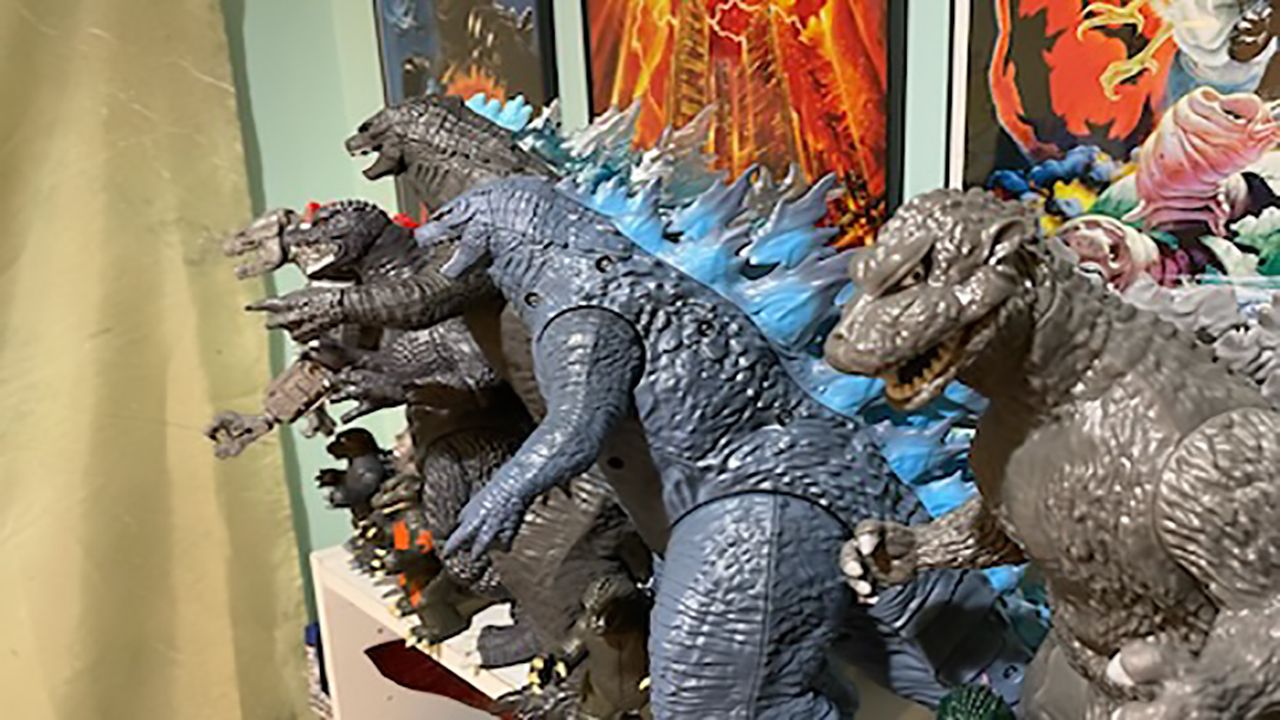Stormy weather and the attempted control of it has been at the heart of monster movies since their inception.
We still hear the song blaring from the speakers, “history shows again and again how nature points out the folly of man, Go Go Godzilla” as the band Blue Oyster Cult jams out to their 1977 hit song “Godzilla.”
But did you know that Godzilla monsters are often born out of weather phenomena? Whether it be thunderstorms, typhoons or blizzards, weather plays a crucial role in the Godzilla universe.
Different iterations of Godzilla over the years.
When it comes to monster movies, Godzilla, or Gojira in Japanese, takes the cake. Modeled after a giant gorilla and whale combination, Godzilla is the ultimate antihero for our planet. Originating from the concept of nuclear testing in the Pacific Ocean, Godzilla was created.
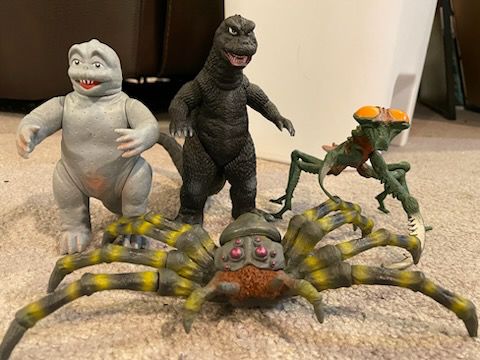
The monsters featured: Minilla (left), Godzilla (middle), Kamacuras (right) and Kumonga (front) by Tommy O. of Omniverse Studios
The typhoon in 1964’s Mothra vs Godzilla caused the buried Mothra egg to fall into the sea and wash up to Japan’s coastline. Before this typhoon, Infant Island (the fictional island home of Mothra) was a lush tropical island, until it was used as a nuclear testing site, rendering the island a harsh barren landscape.
The typhoon caused the soft ground along the coastline containing the Mothra egg to erode, and the intense rainfall and wind gusts washed it away.
As people have seen on beaches or on lawns that don’t have grass, erosion is caused by the movement of water carrying natural substrates such as dirt or sand to a different place.
Obviously, the ground protecting the Mothra egg was eroded away by the rain from the typhoon. Though the larvae (yes, two Mothra larvae) hatched from the egg, survived battling Godzilla and returned to Infant Island.
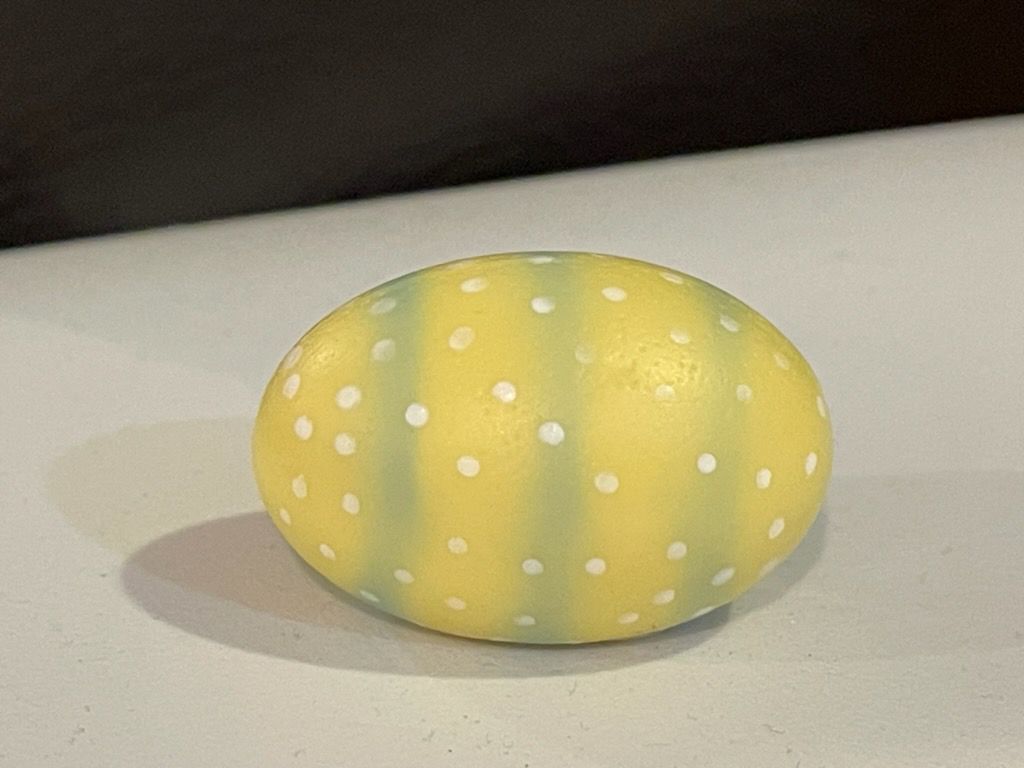
The Mothra Egg. Photo by Tommy O. of Omniverse Studios
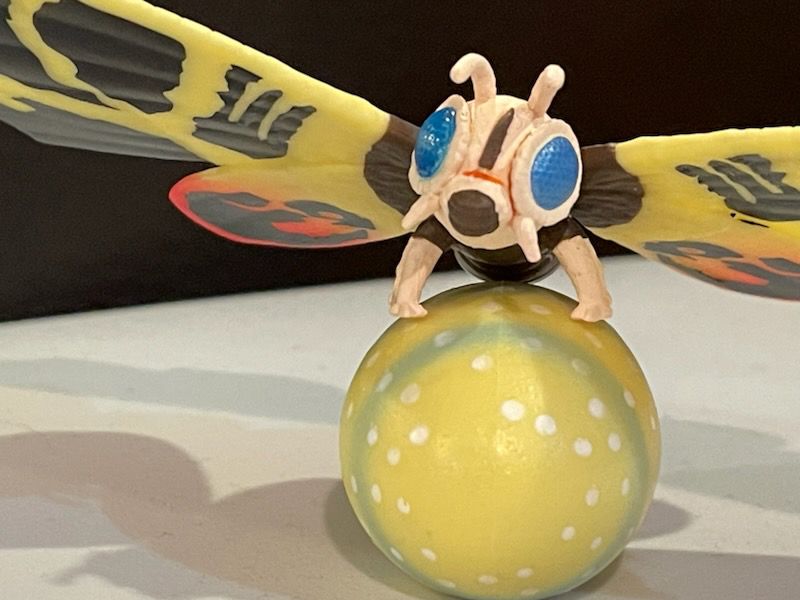
Mothra herself with the egg. Photo by Tommy O. of Omniverse Studios
In 2019’s Godzilla: King of the Monsters, the iconic arch enemy of Godzilla, King Ghidorah (or Ghidorah for short) along with Mothra and Rodan were reintroduced to modern audiences and made their American big screen debut.
But one notable feature of this incarnation of Ghidorah was his Meteorokinesis (the ability to control the weather and climate). According to Gojipedia, Ghidorah conducts electrical currents strong enough to make water vapor heat enough to create and maintain localized storm systems.
Because of this, wherever he went, the storm came with him and the longer he was active, the more severe the storm got. The storm Ghidorah generated became a Category 6 hurricane when it reached Washington, D.C., where he was met in battle by the military along with Rodan.
Combined with other monsters he brainwashed, Ghidorah’s storm also created off shoot supercells, squall lines, tornadoes and severe thunderstorms which numbered in the hundreds and spread worldwide, causing what a news report in the movie called “the greatest disaster the world has ever seen.”
Thankfully, with a little help from Mothra, Godzilla gave Ghidorah, like all villains, what he deserved.
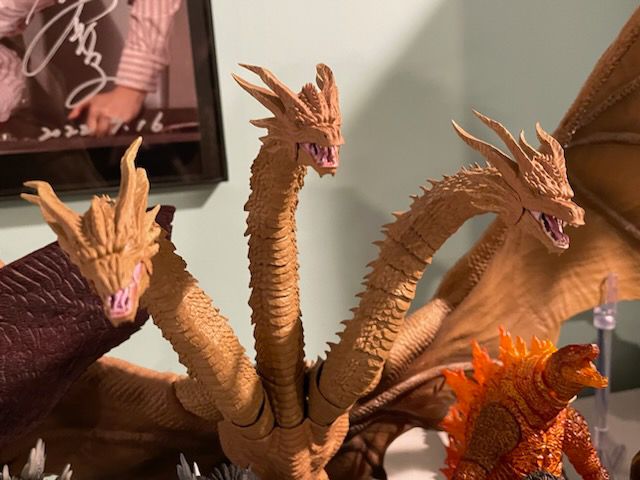
Ghidorah as featured in 2019’s Godzilla: King of The Monsters. Photo by Tommy O. of Omniverse Studios
In 1954, and for decades to follow, Haruo Nakajima was the lead suit actor in the Godzilla franchise. Fast forward to 2019 and motion capture actor named T.J. Storm is the one who donned the suit in 2019 for “Godzilla: King of the Monsters.”
The actor shares his experience playing a “400 foot tall 90,000 metric ton radioactive Kaiju/Titan.
If you’re a big fan, here are some more Godzilla songs.
Godzilla isn’t the only monster verse inspired by chaotic weather. Here, you can read about how Frankenstein’s creator made the play on lightning after a experiencing a bout of stormy conditions.
Monster history
In 1967’s Son of Godzilla, the weather control devices were part of a research laboratory set up by a team of scientists from the United Nations on the fictional Solgell Island to test weather-altering technology.
The devices were capsules that deployed what’s called, according to Gojipedia, the Radioactivity Sonde which was supposed to fly high into the sky and emit a special gas that alters the weather and climate.
The first test, however, failed when the sonde exploded midair and unleashed radiation onto Solgell Island, causing the native giant mantis species to grow massive, turning them into Kamacuras, which multiple Kamacuras battle Godzilla while attempting to eat the egg containing his son Minilla.
Later in the movie, a second sonde was deployed and was a success, causing a massive blizzard covering the island, forcing Godzilla and Minilla to huddle together to stay warm as the island froze.
Our team of meteorologists dives deep into the science of weather and breaks down timely weather data and information. To view more weather and climate stories, check out our weather blogs section.

